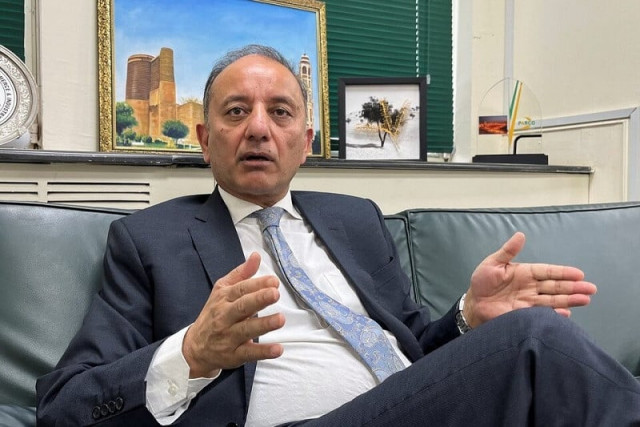Islamabad:
The Federal Minister of Climate Change and Environmental Coordination Senator Musadik Malik on Thursday announced that Prime Minister Shehbaz Sharif had ordered a comprehensive 300-day implementation plan within 15 days to tackle the mounting challenges of climate change, including the risks of monsoon and accelerated glacial smelting.
The directives came a day after Prime Minister Shehbaz declared a climate and agriculture’s emergency in view of the ongoing monsoon rain and flooding situation across the country.
When he spoke at a press conference flanked by National Disaster Management Authority (NDMA) President Lieutenant General Inam Haider Malik, the minister said the action plan would be developed in coordination with federal ministries, provincial governments, armed forces, welfare organizations and non-state bodies.
“We must act within our own resources with the support of civil administration, welfare institutions and armed forces to protect our children and communities,” he noted.
Read more: Govt moves to declare climate situation
The Minister added that the Prime Minister had declared both a national emergency and an agricultural emergency during a recent cabinet meeting. He said the measures were designed to prevent losses in the upcoming Monsun season and from glown melting. “This is not unique to Pakistan. The whole world is changing and all nations must wake up to this reality,” he observed.
Malik, who outlined the government’s flood response, said more than 2.4 million people had been evacuated in Punjab, while Sindh received warnings due to delayed water flow. “From Sialkot to Narowal, Lahore, Shahdara, Jhang and Sargodha, two large flood waves have already been traced, where a now approaching his head Punjnad,” he said.
The minister praised the role of welfare organizations and said they had provided over 2,000 tonnes of relief, while provincial administrations and the military worked closely in the field. “In times of national crises, we stand together-Punjab, Sindh, Khyber-Pakhtunkhwa, Gilgit-Baltistan and Azad Jammu and Kashmir. This is a natural accident and we face it together as a nation,” he maintained.
Malik said the climate measure would be completed within a month and emphasized the government’s obligation to emergency preparedness and resilience. “We ask no such destruction ever to come again, but if it does, Pakistan will face it united with preparation, resilience and faith,” he concluded.
The minister also revealed that Pakistan remains among the countries worst affected by climate change. He urged provinces to secure early monsoon preparations and praised the commitment in private and welfare sectors in relief efforts. Serious damage was reported in Sialkot and Narowal, while Sindh, he said, had already made precautions. He also confirmed that the death toll from rain and floods had risen to over 930 nationwide.
ALSO READ: Punjab Floods: Million’s Face Displacement
Meanwhile, during a briefing on flooding by the National Disaster Management Authority (NDMA) headquarters, NDMA chairman said Lieutenant Inam Haider Malik that livestock and crops had been wiped out in many areas.
“The situation in Sutlej, Ravi and Chenab regions is under control, and rescue operations continue across the country,” said Inam Haider. “In Punjab, 2.4 million people have been moved to safe areas, while about 150,000 people in Sindh have been moved.”
He added that relief efforts were supported by welfare organizations to whom NDMA was “grateful.” To reduce water pressure, dams were deliberately broken in certain areas, he said.
According to Inam Haider, the Punjab government has been provided with ration packages and 9,000 tents, while over 9,000 tonnes of food rations have been distributed over the province.
The NDMA chief warned that crops had suffered severe damage due to the flood, while increasing temperatures accelerated the melting of glaciers. “From 16 to 18 September, rainfall is expected in central Punjab and Azad Kashmir,” he said. “We have to act together to tackle climate challenges.”



